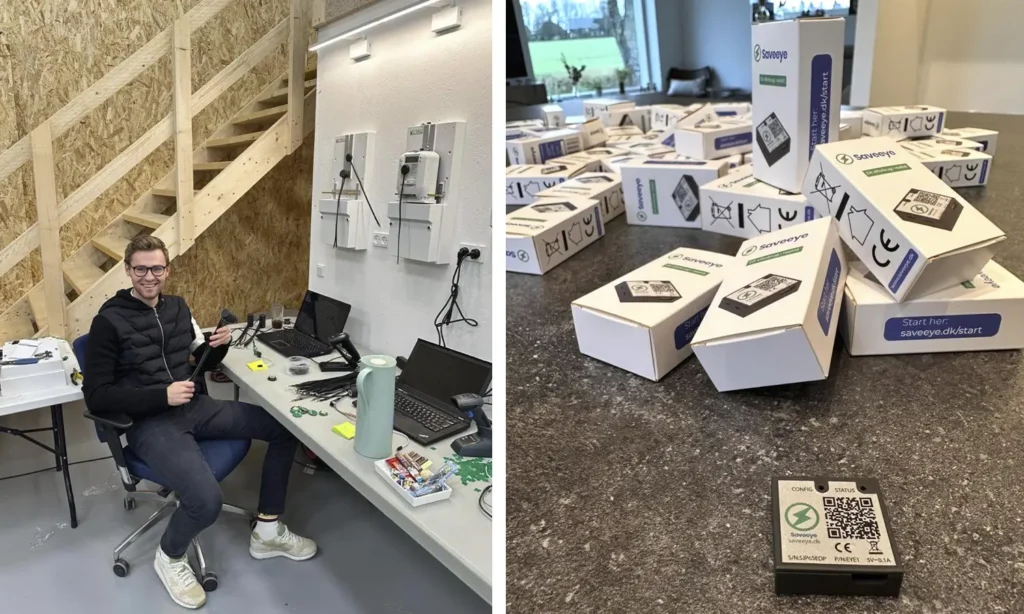The Nordic region has the potential to become a major global fintech hub, with Sweden spearheading transformation through more than 83 funding rounds for fintechs. We asked Swedish fintech star iZettle why that might be.
Sweden is quickly becoming a global force in the tech industry, with recent global megahits like Spotify, Minecraft and Candycrush Saga.
Today, Sweden is second only to Silicon Valley when it comes the number of unicorns (multi-billion dollar tech companies) produced per capita. And according to data from OECD, Sweden has 20 startups per 1,000 employees, compared to just five in the United States.
In the rapidly growing fintech sector of the Nordic region, Sweden spearheads the industry ahead of its Scandinavian neighbours. According to the Nordic Tech List, Swedish fintech companies locked in more than 75 percent of the total invested fintech capital in the Nordic region in 2017. Added to this, 80 percent of the 97 Nordic companies that were able to finalise an investment in 2017 came from Sweden.
So why is the Swedish fintech environment thriving in such a way? We asked Swedish fintech star iZettle.
The next Swedish unicorn?
iZettle is a fintech company that offers financial services to meet the needs of small businesses. Perhaps best known for its payment service, which enables small businesses to receive credit and debit card payments, the company now operates in twelve countries. Still, the Swedish startup environment remains a big part of the company’s DNA, which is why it chooses to remain in Stockholm.
“Sweden and its startup ecosystem are part of our DNA; it is a natural base for us. That said, we’ve had a global mindset from day one, which is crucial, and we have expanded and recruited beyond our home market from the start. Today we’re in twelve countries across Europe and in Latin America,” says Johan Bendz, Chief Strategy and Communication officer.
In December 2017, iZettle closed its series E, raising 47 million dollars at a 770 million dollars pre-money valuation, nearing the 1 billion dollar unicornUnicorn er et udtryk, der bruges til at beskrive en startup-virksomhed, der har nået en værdiansættelse på 1 milliard dollars eller mere. More status. The investment ended a successful year for a company that started 2017 by finalising the series D round, worth 15 million dollars at a 500 million dollars pre-money valuation.
Tradition for entrepreneurship
Johan Bendz credits a well-established tradition for the entrepreneurial success Sweden has been experiencing in recent years.
“Just like Björn Borg inspired generations of Swedish tennis players, we’ve had success stories such as IKEA and H&M, and later on startups like Spotify, King and iZettle, that have inspired a new generation of startups. We now have a thriving ecosystem, with second and third generation entrepreneurs supporting a new wave of entrepreneurs. These success stories have also been a driving force behind setting up world-class university entrepreneurship programmes and support systems across Sweden,” says Johan Bendz.
Connectivity and trust
There are other factors that are helping the Swedish fintech sector flourish, however. Swedish citizens are among the World’s most connected. More than 60 percent of the country has access to super fast fibre optic broadband capable of 100 megabits per second. A figure that the Swedish government wants to see rise to 90 percent by 2020.
“We are one of the most connected countries in the EU, and the majority of Swedes have smartphones and tablets, and are happy to use them for financial transactions. Historically low corruption levels have contributed to a high level of confidence in the suppliers of fintech services. We also have a strong history of innovation and of housing big financial players, meaning that we’re both open to and in need of change,” says Johan Bendz.
Such trust has allowed intrapreneurship to thrive. Intrapreneurship refers to collaborative, innovative work with companies, and thrives when there is a high level of trust between individuals in a society. Here, Sweden comes second only to Denmark.
The success currently being enjoyed by Sweden is not easy to copy, as it is the result of tradition going back generations, combined with the governing of the country and social culture.
The tide is turning
iZettle started off on its journey in 2010, and since then the company has closed ten rounds, raising a total of 270 million euros, as well as one undisclosed round. But back in 2010, the fintech ecosystem was completely different from today’s thriving environment.
“It’s like night and day. Only five years ago, the word fintech didn’t even exist, and few believed that what we do would have an impact. Today it’s a thriving industry, and more and more fintech startups are popping up, with investments at an all-time high and banks realising they need to invest in or partner with fintechs in order to stay future-proof,” Johan Bendz says.
It is difficult to not be optimistic about the evolution of the fintech ecosystem in Sweden, but there are some challenges.
“There is not easy access to tech talent. Swedish fintechs are struggling to attract key talent and compete on an international labour market due to regulatory holdbacks, like bureaucratic and complicated migration rules, an acute housing shortage and high corporate taxes,” Johan Bendz says.
In March last year, Deloitte concluded that a common challenge in the Scandinavian region is the strict regulation and lacking governmental support for fintechs. They also concluded that the remainder of 2017 looked very positive for Stockholm, and anticipated an increase in the number of fintechs and stronger investments from VCs setting up and investing in Stockholm.
Well, look at them now.
















 Kære læser, du er meget velkommen til at dele vores artikler på sociale medier, linke eller referere til artikler eller content på TechSavvy.media. Men ønsker du helt eller delvist at kopiere indhold fra sitet må det kun ske efter aftale med vores redaktion på editorial@techsavvy.media.
Kære læser, du er meget velkommen til at dele vores artikler på sociale medier, linke eller referere til artikler eller content på TechSavvy.media. Men ønsker du helt eller delvist at kopiere indhold fra sitet må det kun ske efter aftale med vores redaktion på editorial@techsavvy.media.
 Kære læser, du er meget velkommen til at dele vores artikler på sociale medier, linke eller referere til artikler eller content på TechSavvy.media. Men ønsker du helt eller delvist at kopiere indhold fra sitet må det kun ske efter aftale med vores redaktion på editorial@techsavvy.media.
Kære læser, du er meget velkommen til at dele vores artikler på sociale medier, linke eller referere til artikler eller content på TechSavvy.media. Men ønsker du helt eller delvist at kopiere indhold fra sitet må det kun ske efter aftale med vores redaktion på editorial@techsavvy.media.